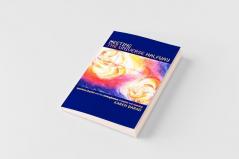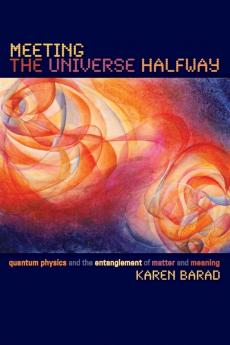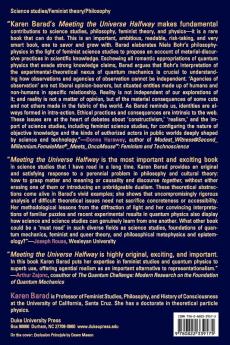English
Paperback
₹3124
₹4025
22.39% OFF
(All inclusive*)
Delivery Options
Please enter pincode to check delivery time.
*COD & Shipping Charges may apply on certain items.
Review final details at checkout.
Looking to place a bulk order? SUBMIT DETAILS
About The Book
Description
Author
<div><i>Meeting the Universe Halfway</i> is an ambitious book with far-reaching implications for numerous fields in the natural sciences social sciences and humanities. In this volume Karen Barad theoretical physicist and feminist theorist elaborates her theory of agential realism. Offering an account of the world as a whole rather than as composed of separate natural and social realms agential realism is at once a new epistemology ontology and ethics. The starting point for Barad's analysis is the philosophical framework of quantum physicist Niels Bohr. Barad extends and partially revises Bohr's philosophical views in light of current scholarship in physics science studies and the philosophy of science as well as feminist poststructuralist and other critical social theories. In the process she significantly reworks understandings of space time matter causality agency subjectivity and objectivity.<p>In an agential realist account the world is made of entanglements of social and natural agencies where the distinction between the two emerges out of specific intra-actions. Intra-activity is an inexhaustible dynamism that configures and reconfigures relations of space-time-matter. In explaining intra-activity Barad reveals questions about how nature and culture interact and change over time to be fundamentally misguided. And she reframes understanding of the nature of scientific and political practices and their interrelationship. Thus she pays particular attention to the responsible practice of science and she emphasizes changes in the understanding of political practices critically reworking Judith Butler's influential theory of performativity. Finally Barad uses agential realism to produce a new interpretation of quantum physics demonstrating that agential realism is more than a means of reflecting on science; it can be used to actually do science.</p></div>
Delivery Options
Please enter pincode to check delivery time.
*COD & Shipping Charges may apply on certain items.
Review final details at checkout.
Details
ISBN 13
9780822339175
Publication Date
-11-07-2007
Pages
-542
Weight
-726 grams
Dimensions
-152x229x27.81 mm














